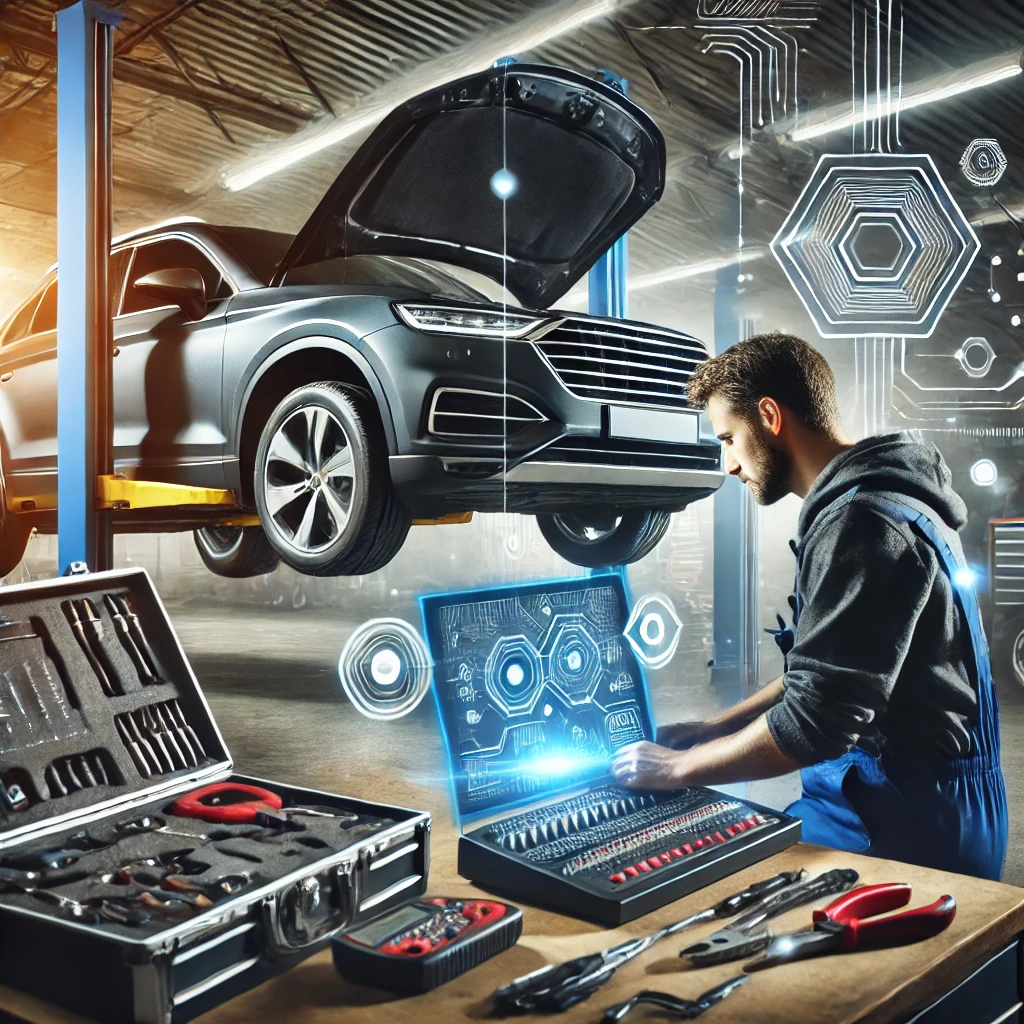Introduction
Car maintenance and repair are crucial aspects of vehicle ownership, ensuring safety, efficiency, and longevity. Regular servicing and timely repairs help prevent expensive breakdowns and improve your car’s performance. In this guide, we’ll explore essential car maintenance tips, common issues, and how to address them effectively.
Essential Car Maintenance Tips
1. Regular Oil Changes
Changing your engine oil and filter at recommended intervals keeps your engine running smoothly and prevents wear. Use high-quality oil suited to your car’s specifications.

2. Check and Replace Brake Pads
Brakes are a critical safety component. Inspect brake pads regularly and replace them when they become too thin. Squeaking or grinding noises indicate the need for immediate attention.
3. Monitor Tire Pressure and Tread
Proper tire pressure improves fuel efficiency and handling. Check your tires monthly and ensure they have adequate tread depth to maintain traction, especially in wet conditions.
4. Battery Maintenance
A weak battery can leave you stranded. Check for corrosion, secure connections, and test the voltage periodically. Replace your battery every 3-5 years or as needed.
5. Transmission Fluid Checks
Low or dirty transmission fluid can lead to shifting problems and transmission failure. Check the fluid regularly and replace it according to your vehicle’s manual.
6. Inspect Belts and Hoses
Cracked or worn-out belts and hoses can cause engine overheating and breakdowns. Inspect them periodically and replace them if signs of wear appear.
7. Keep Your Cooling System in Check
An overheating engine can cause severe damage. Regularly check coolant levels and radiator condition, and flush the cooling system as recommended.
Common Car Problems and Fixes
Engine Overheating
- Check coolant levels and refill if necessary.
- Inspect radiator and hoses for leaks.
- Ensure the thermostat and cooling fan function properly.
Strange Noises
- Squealing could indicate worn-out belts.
- Clicking sounds may come from low engine oil or faulty CV joints.
- Knocking noises require immediate engine inspection.
Electrical System Malfunctions
- If lights dim or flicker, test the battery and alternator.
- Replace blown fuses and faulty wiring to restore function.
When to Visit a Mechanic
While DIY repairs can save money, some issues require professional expertise. If you notice persistent warning lights, major fluid leaks, or steering and suspension problems, consult a certified mechanic.
Conclusion
By following these car maintenance and repair tips, you can keep your vehicle in excellent condition and avoid costly repairs. Routine maintenance and early problem detection will help ensure a smooth and safe driving experience. Whether you handle minor fixes yourself or visit a mechanic for complex repairs, staying proactive is the key to vehicle longevity.


